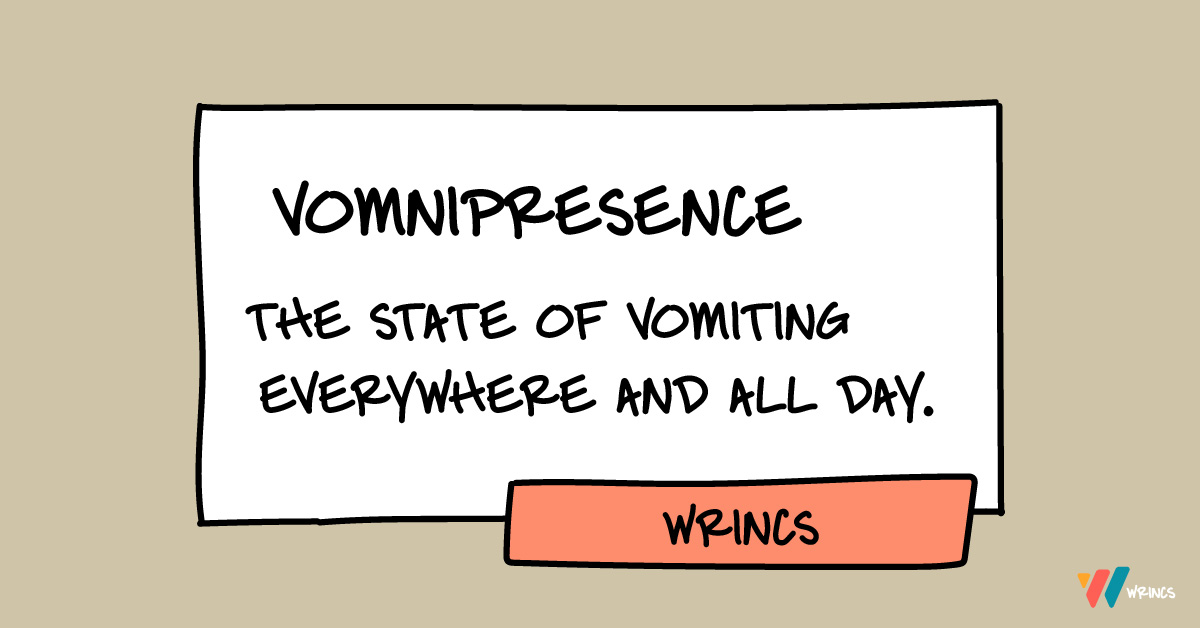In my previous post, Additional Nutritional Considerations During Pregnancy, I explored supplements and any nutritional values you should be aware of having too much or too little of. Now I want to know what my wife and I should know about morning sickness.
I Am Not An Expert – This Is Not Advice
Disclaimer: I’m not an expert and don’t know what I’m doing. Even official advice can vary in different parts of the world. This is not an “Ultimate Guide To Everything You Should Know About Morning Sickness”. This is just me and my wife picking the next logical thing to figure out, researching it as best we can and writing it here to organise our thoughts. If it’s helpful to anyone, great. You should do your own research, speak to professionals (when possible) and don’t be offended if we didn’t come to the same conclusions you did. Please let me know if you have advice or disagree. Try not to call me names if I’ve said something stupid. But, if it entertains you, I can take it, so make it good.
We’re (my wife and me) doing this research together and I’m just the one who’s posting it.
Vomiting and Morning Sickness
NHS
You can read the full Vomiting and Morning Sickness article on the NHS website here.
Nausea and vomiting in pregnancy can affect your day or night or you may feel sick all day long. Morning sickness usually clears up by weeks 16 to 20 of your pregnancy. It does not (of itself) put your baby at any increased risk.
There is a chance of developing a severe form of pregnancy sickness called hyperemesis gravidarum. This can be serious, and there’s a chance you may not get enough fluids or nutrients. You may need specialist treatment, sometimes in the hospital. More on this later.
Sometimes urinary tract infections (UTIs) can also cause nausea and vomiting. A UTI usually affects the bladder, but can spread to the kidneys.
Call Your Midwife, GP or 111 if:
You’re vomiting and:
- have very dark-coloured urine or have not had a pee in more than 8 hours
- are unable to keep food or fluids down for 24 hours
- feel severely weak, dizzy or faint when standing up
- have tummy (abdominal) pain
- have a high temperature
- vomit blood
- have lost weight
Treatments for Morning Sickness
Unfortunately, there’s no hard and fast treatment that will work for everyone’s morning sickness. Every pregnancy will be different.
Things You Can Try Yourself
If your morning sickness is not too bad, your GP or midwife will initially recommend you try some lifestyle changes:
- get plenty of rest (tiredness can make nausea worse)
- avoid foods or smells that make you feel sick
- eat something like dry toast or a plain biscuit before you get out of bed
- try eating small, frequent meals of plain foods that are high in carbohydrate and low in fat (such as bread, rice, crackers and pasta)
- eat cold foods rather than hot ones if the smell of hot meals makes you feel sick
- drink plenty of fluids, such as water (sipping them little and often may help prevent vomiting)
- eat foods or drinks containing ginger – there’s some evidence ginger may help reduce nausea and vomiting (check with your pharmacist before taking ginger supplements during pregnancy)
- try acupressure – there’s some evidence that putting pressure on your wrist, using a special band or bracelet on your forearm, may help relieve the symptoms
Anti-Sickness Medicine
If your nausea and vomiting is severe and doesn’t improve from the above lifestyle changes, you may need anti-sickness medicine. Your GP may recommend a short-term course of anti-sickness medicine, called an antiemetic, that’s safe to use in pregnancy.
Antiemetics will usually be given as tablets for you to swallow. But if you cannot keep these down, your doctor may suggest an injection or a type of medicine that’s inserted into your bottom (suppository).
See your GP if you’d like to talk about getting anti-sickness medication.
Risk Factors For Morning Sickness
It’s thought hormonal changes in the first 12 weeks of pregnancy are probably one of the causes of morning sickness. But you may be more at risk of it if:
- you’re having twins or more
- you’ve had severe sickness and vomiting in a previous pregnancy
- you tend to get motion sickness (for example, car sick)
- you have a history of migraine headaches
- morning sickness runs in the family
- you used to feel sick when taking contraceptives containing oestrogen
- it’s your first pregnancy
- you’re obese (your BMI is 30 or more)
- you’re experiencing stress
Severe Vomiting in Pregnancy
You can read the full Severe Vomiting in Pregnancy article on the NHS website here.
Around 8 out of every 10 pregnant women feel sick (nausea), are sick (vomiting) or both during pregnancy. Some pregnant women experience very bad nausea and vomiting. They might be sick many times a day and be unable to keep food or drink down. This excessive nausea and vomiting is known as hyperemesis gravidarum (HG), and often needs hospital treatment.
Exactly how many pregnant women get HG is not known as some cases may go unreported, but it’s thought to be around 1 to 3 in every 100.
If you are being sick frequently and cannot keep food down, tell your midwife or doctor, or contact the hospital as soon as possible. There is a risk you may become dehydrated, and a medical professional can make sure you get the right treatment.
Symptoms of Hyperemesis Gravidarum
HG is much worse than the normal nausea and vomiting of pregnancy. Signs and symptoms of HG include:
- prolonged and severe nausea and vomiting
- being dehydrated. Symptoms of dehydration include, feeling thirsty, tired, dizzy or lightheaded, not peeing very much, and having dark yellow and strong-smelling pee
- weight loss
- low blood pressure (hypotension) when standing
You may also experience:
- extremely heightened sense of smell
- excessive saliva production
- headaches and constipation from dehydration
Unlike regular pregnancy sickness, HG may not get better by 16 to 20 weeks. It may not clear up completely until the baby is born, although some symptoms may improve at around 20 weeks.
There are other conditions that can cause nausea and vomiting, and your doctor will need to rule these out first.
What Causes Hyperemesis Gravidarum?
It’s not known what causes HG, or why some women get it and others do not. Some experts believe it is linked to the changing hormones in your body that occur during pregnancy.
There is some evidence that it runs in families. So if your mother or sister had HG in a pregnancy, you may be more likely to get it yourself.
Treating Hyperemesis Gravidarum
There are medicines you can use in pregnancy, including the first 12 weeks, to help improve the symptoms of HG. These include anti-sickness (anti-emetic) drugs, vitamins (B6 and B12) and steroids, or combinations of these.
You may need to try different types of medicine until you find what works best for you.
If your nausea and vomiting cannot be controlled, you may need to be admitted to hospital. This is so doctors can assess your condition and give you the right treatment to protect the health of you and your baby.
Treatment can include intravenous fluids, which are given directly into a vein through a drip. If you have severe vomiting, the anti-sickness drugs may also need to be given via a vein or a muscle.
Will Hyperemesis Gravidarum Harm My Baby?
HG can make you feel very unwell, but it’s unlikely to harm your baby if treated effectively.
However, if it causes you to lose weight during pregnancy, there is an increased risk that your baby may be born smaller than expected (have a low birthweight).
Blood Clots and Hyperemesis Gravidarum
Because HG can cause dehydration, there’s also an increased risk of having a blood clot (deep vein thrombosis), although this is rare.
If you are dehydrated and immobile, there is treatment that you can be given to prevent blood clots.
How Mrs Wrincs Feels
Bad. She was diagnosed with Hyperemesis Gravidarum and I was really worried about her. I wish I had done this research before she got to that stage. She often doesn’t have the energy to look into things herself at the moment so I’m trying to do what I can to support her. Sometimes the research helps but most of the morning sickness tips we found had no effect. There are a lot of tips out there but most fall into the categories suggested by the NHS.
This is our first pregnancy and it’s still early so this is the first thing we can give our opinion on from our personal experience. When things got bad, we found it was best to just keep trying things until something stays down (but that same food might not be fine tomorrow) and more importantly, focus on water in the short term. If possible get any multivitamins and supplements in that you can (you can see our post about that here).
Ultimately, the best advice we can give is to not suffer quietly. Tell your doctor. Ask for meds. They have a hierarchy for meds to try so if one doesn’t work or stops being effective, ask if you can be put on the next as soon as possible. My wife is on her third anti-sickness medication and it made a big difference. We were pretty proactive but I wish we’d been a little quicker.
Mrs Wrincs is getting better but this has been tough for her. If you go through something similar we hope some of this information helps. It will get better. You can do this.
Everyone’s Different
Just to reiterate: This is not intended to be a guide. Just a log and breakdown of the information we’ve found and how we’ve interpreted it. I’m not an expert (very far from it); I’m just doing my best for our new family. If it’s useful to anyone, that’s great. This is not the “right answer”. This is just how an idiot and his wife approached a complicated topic.
Next Pregnancy Post: Managing Your Mental Health In Pregnancy
Previous Pregnancy Post: Additional Nutritional Considerations During Pregnancy
First Pregnancy Post: I’m Pregnant. Now What?


Have you heard of Pregnancy Sickness Support in the UK & Help Her in the US. Both are great charities that offer support through HG & NVP
I hadn’t. I’ll check them out. Thank you for letting us know, Kate.